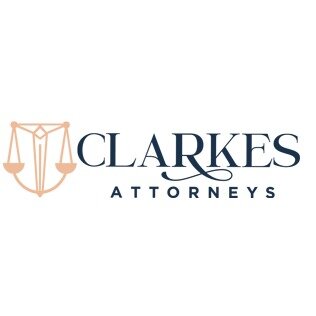Best Disability Lawyers in Lilongwe
Share your needs with us, get contacted by law firms.
Free. Takes 2 min.
List of the best lawyers in Lilongwe, Malawi
About Disability Law in Lilongwe, Malawi
Disability law in Lilongwe, Malawi, is governed by national legislation aligned with international standards like the United Nations Convention on the Rights of Persons with Disabilities (UN CRPD). The Malawi Disability Act, enacted in 2012, mandates the promotion and protection of rights for persons with disabilities. Lilongwe, as the capital city, offers various facilities and resources for people with disabilities, though challenges remain due to infrastructural barriers and limited access to services.
Why You May Need a Lawyer
Legal assistance is often sought to navigate the complexities of disability rights and ensure adequate protection under the law. Common situations where legal help might be necessary include:
- Ensuring accessibility in public and private spaces.
- Assisting with discrimination claims in employment, education, or housing.
- Advocating for appropriate medical care and social services.
- Securing disability benefits and pensions.
- Handling issues related to guardianship and mental health rights.
Local Laws Overview
The key legal framework concerning disability in Lilongwe includes the Malawi Disability Act, which emphasizes inclusivity, equal opportunities, and accessibility. The Act requires buildings and transportation systems in public use to be accessible and mandates government programs to accommodate people with disabilities. Additionally, it is a legal requirement for employers to provide reasonable accommodations in the workplace.
Frequently Asked Questions
What rights do people with disabilities have in Malawi?
Under the Malawi Disability Act, individuals with disabilities have the right to accessibility, equality in employment, education, and protection from discrimination.
How does the law define a disability?
The law defines disability as a physical, sensory, mental, or intellectual impairment that significantly restricts a person from performing daily activities.
Can I request reasonable accommodations at work?
Yes, employers are legally obliged to provide reasonable accommodations to employees with disabilities, barring undue hardship on the business.
What should I do if my child with disabilities is denied education?
Seek legal advice immediately to address the violation of educational rights through negotiation or litigation.
Are there specific accessibility requirements for public buildings?
Yes, the law requires that public buildings adhere to accessibility standards, including ramps, elevators, and signage in Braille.
How can I report discrimination based on disability?
You can file a complaint with the Malawi Human Rights Commission or seek assistance from legal practitioners specializing in disability rights.
Is there financial support available for persons with disabilities?
Yes, the government provides some disability grants and support services, but eligibility criteria must be met. Legal advice may help streamline the application process.
Are there laws protecting mental health rights?
Yes, the disability law encompasses mental health rights, ensuring that individuals receive proper medical care and protection against discrimination.
What legal protections exist for persons with disabilities in employment?
The Malawi Employment Act prohibits discrimination against persons with disabilities and stipulates equal pay for equal work.
What role does the Malawi Human Rights Commission play in protecting disability rights?
The Commission is responsible for monitoring compliance with human rights standards, including those related to disabilities, and can assist with investigations and advocacy.
Additional Resources
Several organizations and government bodies can assist those seeking legal advice or services in the field of disability:
- The Federation of Disability Organizations in Malawi (FEDOMA)
- The Malawi Human Rights Commission
- The Department of Disability and Elderly Affairs
- Local non-governmental organizations focused on disability rights.
Next Steps
If you need legal assistance in disability matters, consider reaching out to a lawyer specializing in disability law. Researching local law firms or contacting the Malawi Law Society for recommendations can be beneficial. In addition, engaging with support organizations can provide guidance and connect you to necessary resources and representation.
Lawzana helps you find the best lawyers and law firms in Lilongwe through a curated and pre-screened list of qualified legal professionals. Our platform offers rankings and detailed profiles of attorneys and law firms, allowing you to compare based on practice areas, including Disability, experience, and client feedback.
Each profile includes a description of the firm's areas of practice, client reviews, team members and partners, year of establishment, spoken languages, office locations, contact information, social media presence, and any published articles or resources. Most firms on our platform speak English and are experienced in both local and international legal matters.
Get a quote from top-rated law firms in Lilongwe, Malawi — quickly, securely, and without unnecessary hassle.
Disclaimer:
The information provided on this page is for general informational purposes only and does not constitute legal advice. While we strive to ensure the accuracy and relevance of the content, legal information may change over time, and interpretations of the law can vary. You should always consult with a qualified legal professional for advice specific to your situation.
We disclaim all liability for actions taken or not taken based on the content of this page. If you believe any information is incorrect or outdated, please contact us, and we will review and update it where appropriate.











